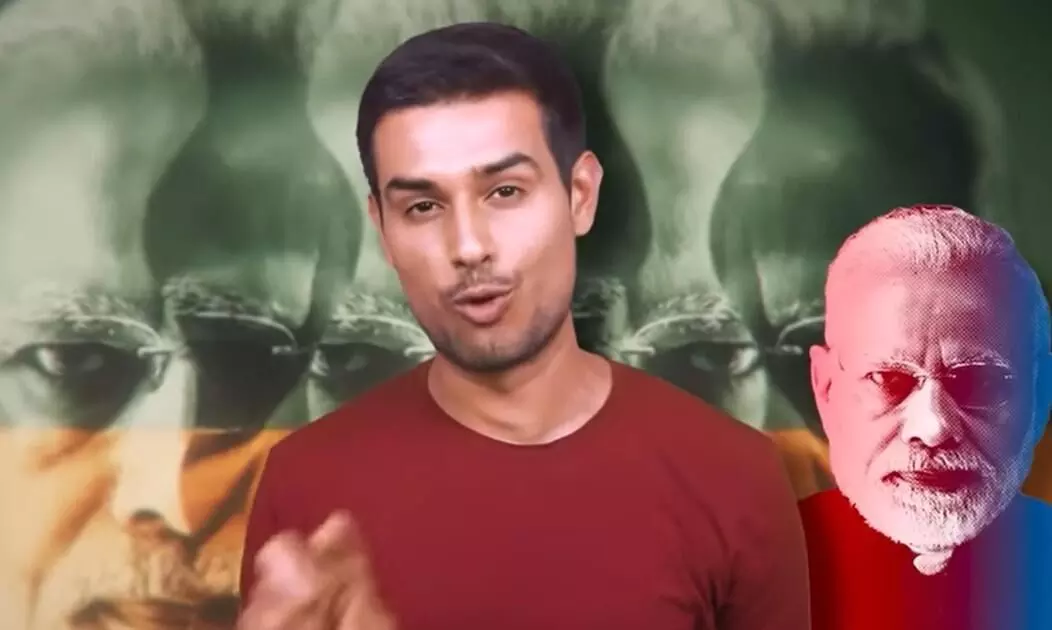
Laws slapped are untenable, says lawyer arrested for sharing Dhruv Rathee’s video
text_fieldsDhruv Rathee (file photo)
Adesh Bansode, a lawyer and state secretary of the Communist Party of India (Marxist–Leninist), who was arrested for sharing the video titled ‘The Narendra Modi Files | A DICTATOR Mentality?’ posted by YouTuber and political commentator Dhruv Rathee, asserts that his arrest lacks legal justification.
Bansode, from Maharashtra’s Vasai, stated that the FIR filed against him under various sections of the Indian Penal Code and the Representation of the People Act (RPA) is untenable since there is no prohibition against sharing WhatsApp messages under these acts, according to a report published in The Wire.
He shared the video along with a message urging viewers to watch it before voting, as it coincided with the fifth phase of the general elections. Bansode maintains that his message was neither provocative nor did it endorse any particular political party.
But Bansode was booked under sections 188, 171 (F), and 171 (G) of the Indian Penal Code, as well as Section 123(4) of the Representation of the People Act (RPA). Section 188 applies when a person tends to cause danger to human life with his disobedience; Section 171 (F) defines punishment for undue influence or personation at an election, and Section 171 (G) is applied when a person makes a false statement in connection with an election. Similarly, Section 123 (4) of the RPA can be applied when a person, who is either a candidate or an agent of a candidate, puts out a false statement, The Wire said.
However, the sharing of the video drew ire from some members of the 'Bar Association of Vasai' WhatsApp group, leading to the filing of a First Information Report (FIR) against Bansode.
Bansode, who is also a polling agent for the CPI (M-L) party, contends that his actions did not violate any laws. He highlights procedural irregularities in the FIR filing process, citing Section 195 of the Code of Criminal Procedure (CrPC), which requires a magistrate's order before booking someone under certain sections.
Moreover, Bansode’s case is intertwined with a month-old dispute within the legal community, involving a disagreement over the celebration of national figures’ birth anniversaries. He suggests that the FIR against him may be a retaliation for his involvement in reporting a separate incident involving a fellow lawyer.
Critics argue that the action taken by the police in this case contrasts sharply with their response to communal violence earlier in the year. In January, riots erupted in the Mira Road area, where police bias was alleged in handling complaints from the Muslim community. The Commissioner of Police faced scrutiny for allowing a sitting MLA accused of inciting the violence to hold a press conference in his office.
In response to Bansode’s situation, lawyers and activists have formed the ‘Sarva Paksha Sangharsh Samiti’ to protest what they perceive as an infringement on freedom of expression. The committee’s formation underscores growing concerns about the state of public and private institutions in the region and across the country.











